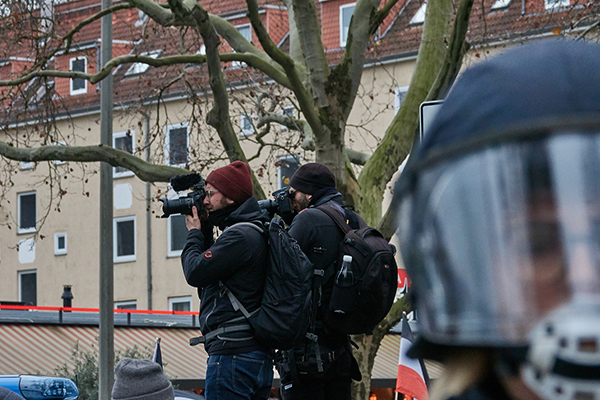Before coming to the University of Pennsylvania Carey Law School, Peter Jacobs spent six years as a journalist, learning first-hand about the importance of a free press. During the widespread protests that took place around the country in response to the murder of George Floyd in 2020, Jacobs watched with alarm as journalists attempting to cover the demonstrations were rounded up along with protesters by police.
Jacobs began his journalism career as a business journalist before leading a team of reporters focused on military and international affairs reporting.
In his Comment “Protest, the Press, and First Amendment Rights Before and after the ‘Floyd Caselaw,’” forthcoming in Volume 24 of the University of Pennsylvania Journal of Constitutional Law, Jacobs explores the contours of journalists’ right to do their jobs.
“As much as I loved my work as a journalist, law school was always in the back of my mind,” says Jacobs. “In all my positions, I kept encountering legal problems and questions that caught my attention and made me want to learn more—from due process concerns with campus sexual misconduct cases to the implications of major breaking Supreme Court decisions to war powers’ worries about international conflicts.”
The protests surrounding the murder of George Floyd last summer inspired Jacob’s Comment in the Journal. “It became clear early on in the coverage of the George Floyd protests last summer that the press was being targeted by police. … I think there’s a really interesting phenomenon happening with what one judge has termed the “Floyd Caselaw”—cases coming out of last summer’s protests — where courts seem to acknowledge that law enforcement can and should be treating members of the press differently when they’re doing their job and covering protests as reporters.”
To Jacobs, the question of press freedom and protests will continue to unfold. “Is there a constitutionally protected right to record or monitor police activity at a protest?”, he asks. “If so, who has this right?”
Read more at Penn Law News.








